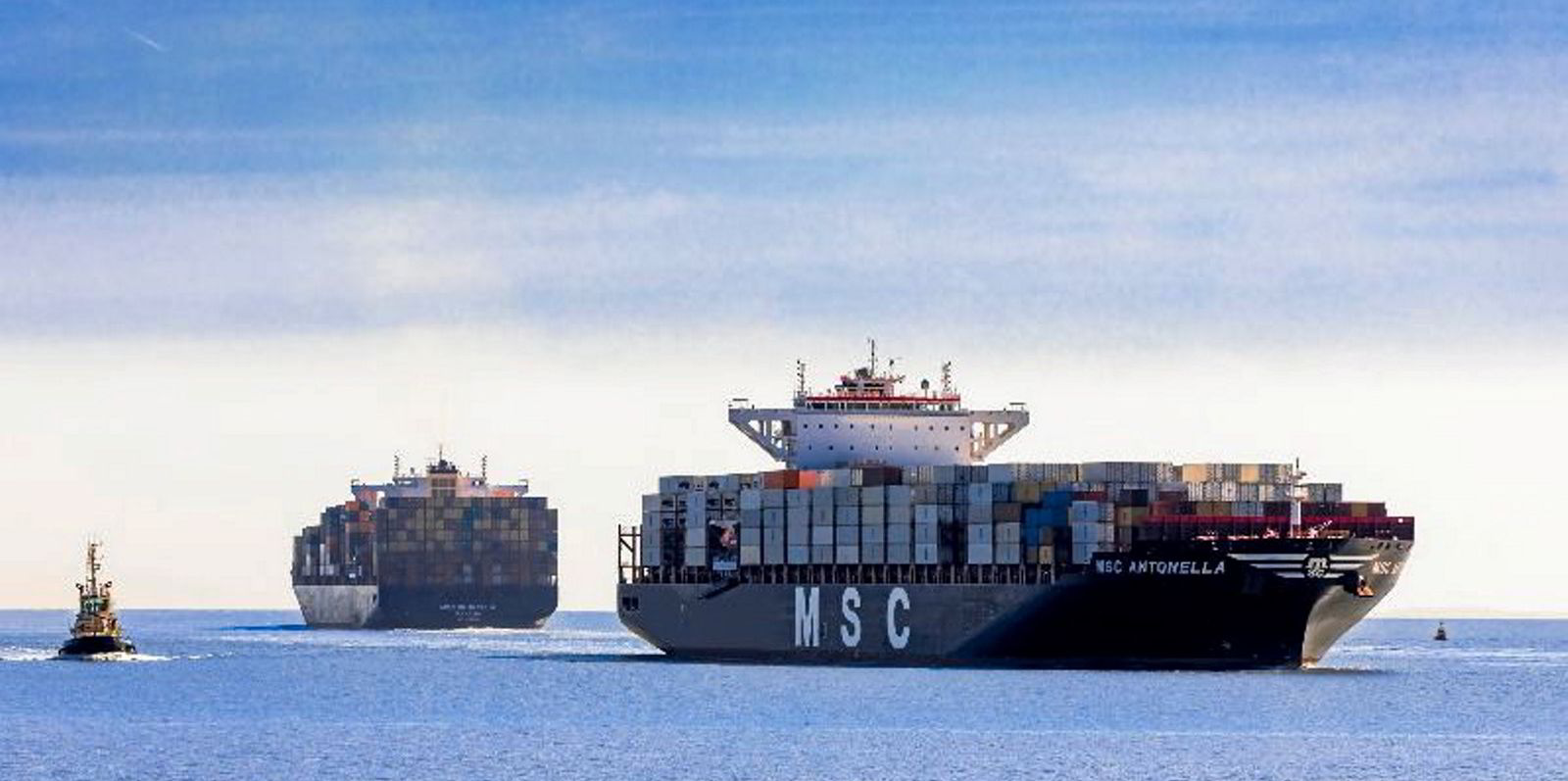Mediterranean Shipping Co (MSC) has awarded air lubrication system manufacturer Silverstream Technologies its biggest order by buying 30 of the fuel-saving systems for the large containership newbuildings it has on order.
MSC expects the systems, which produce a carpet of bubbles to reduce friction between hull and sea, to make an estimated fuel saving of $302m (€257.5m) and cut carbon emissions by 1.6m tonnes over the lifetime of the ships.
Vessels on which the systems will be installed are expected to be delivered from shipyards in Asia between 2022 and 2024 for employment on the trade lanes between Asia and Europe.
Silverstream and MSC said the ships’ carbon reduction would be equivalent to the annual emissions of 350,000 cars. The technology has been independently proven to save 5% to 10% of fuel and emissions.
A system was recently fitted to a VLOC, the 325,000-dwt bulker Sea Victoria (built 2021), operated by Brazilian mining giant Vale, and is now undergoing a one-year verification period.
Last month, UK-based Silverstream chief executive Noah Silberschmidt told TradeWinds that the company expected to announce a number of major newbuilding installation orders in the near future.
Silberschmidt said the MSC contract “is the single largest order of not only our technology, but of any air lubrication technology in the history of our market”.
“[We] are ready for the challenge of managing our largest ever installation programme at five different shipyards,” he added.
Giuseppe Gargiulo, MSC head of newbuildings, said the order would move the company closer to a zero carbon future.
“We are continuously on the lookout for new innovative solutions that could help us achieve efficiency gains. Air lubrication technology is one of the proven technologies,” Gargiulo said.
Silberschmidt added that once launched, the MSC newbuildings will be some of the most efficient containerships on the oceans. The system is also suitable for retrofit installations, the company said.
Silverstream’s ambition is that air lubrication technology should become standard for all newbuildings, and Silberschmidt previously said that he hopes for conversions on existing vessels in the range of 50 to 100 ships over the next five years.






